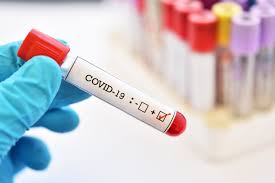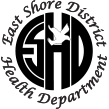COVID-19 Testing

THINK YOU CANT AFFORD TO GET TESTED? Go to https://portal.ct.gov/Coronavirus/Priority-Populations
Or see below at the local options:
LOCAL TESTING Options:
COVID TESTING SITES updated 8.5.2021
Cornell Scott Hill Health Center - 226 Dixwell Ave. New Haven - 203-503-3000 https://www.cornellscott.org/
Mon - Thurs 8:30-4:30, Fridays 8:30 - 6:00 Appt. or walk-in Tests Children PCR Test
Cornell Scott Hill Health Center - 428 Columbus Ave. New Haven - 203-503-3000 https://www.cornellscott.org/
Saturdays. 9-12 Appt. or walk-in Tests Children PCR Test
Quest - 144 N. Main St. Branford website only patient.questdiagnostics.com/no-cost-covid-test
Mon – Fri 7am - 4pm By appt or walk in WITHOUT SYMPTOMS 2 and older insurance or Gov, program PCR test
Quest- 190 Main St. East Havenwebsite only patient.questdiagnostics.com/no-cost-covid-test
Mon- Fri 7 - 3:30 Sat 7 - 11:30am By appt or walk in WITHOUT SYMPTOMS 2 and older insurance or Gov, program PCR test
Quest Village Street, Suite 103, North Haven, CT website only http://patient.questdiagnostics.com/no-cost-covid-test
Mon- Fri 8am-5pm; Sat: 8am-12pm. By appt WITHOUT SYMPTOMS 2 and older insurance or Gov, program PCR test
Quest
Quest. Broadway, Suite 7, North Haven, CT website only http://patient.questdiagnostics.com/no-cost-covid-test
Mon- Fri 7am-4pm By appt or walk in WITHOUT SYMPTOMS YES 2 and older insurance or Gov, program PCR test
Stony Creek Medical 6 Business Park Drive, Branford 203-483-4580 http://stonycreekurgentcare.com
Mon - Fri 10 - 5 By appt NO children PCR Test
CVS Branford - 2-6 Short Beach Rd. Branford. website only https://www.cvs.com/minuteclinic/covid-19-testing
By appt. Drive-up 12 and older insurance or Gov, program Children. Rapid and PCR
Guilford. - 1057 Boston Post Rd. 1-866-389-2727 https://www.cvs.com/minuteclinic/covid-19-testing
By appt. Drive-up 12 and older insurance or Gov, program Children. Rapid and PCR.
Docs Urgent Care Rapid Testing 317 Foxon Rd, East Haven. 203-301-8490 https://docsmedicalgroup.com/
Mon- Fri: 8am-6:30pm; Sat-Sun: 8am-3pm By appt or walk in YES insurance or $195 without insurance . Children and
Rapid and PCR
Yale New Haven Health - 111 Goose Lane Guilford. 833-275-9644
https://www.ynhhs.org/locations/guilford-111-goose-lane-covid-testing.aspx
By Appt. Drive-up Children PCR Test
Yale New Haven Health - 130 Orchard Street, New Haven, CT 833-275-9644
https://www.ynhhs.org/locations/new-haven-130-orchard-street-covid-testi...
By Appt. PCR Test
TESTING FREQUENTLY ASKED QUESTIONS
I don't know if I can pay for this testing. What do I do?
Go to: https://portal.ct.gov/Coronavirus/Priority-Populations to find out how you can get tested.
Who should get tested for COVID-19?
If you are experiencing any symptoms, you need to get tested. If you are a close contact with someone who is sick with Covid-19 you are advised to get tested.
What are the symptoms of COVID-19?
COVID-19 can have mild symptoms to severe illness. Symptoms appear 2 to 14 days after being exposed.
Symptoms can include: cough, shortness of breath or difficulty breathing, fever or chills, muscle or body aches, sore throat, headache, nausea or vomiting, diarrhea, runny nose or stuffy nose, fatigue, recent loss of taste or smell.
Children have similar symptoms to adults and generally have mild illness.
In certain situations, it is recommended that you to be tested even if you do not have symptoms:
- If you are a health care worker, first responder, congregate care facility resident or staff (includes nursing homes, assisted living facilities, managed residential communities, correctional institutions),
- homeless, or living in communities at high risk.
- Being exposed to someone with COVID-19 without adequate protection or detection of asymptomatic spread during an outbreak.
NOTE:
- The most up-to-date guidance from DPH about who should be tested can be found at https://portal.ct.gov/Coronavirus/Covid-19-Knowledge-Base/COVID-19-Testing .
- There is no state requirement that asymptomatic individuals who have not been in contact with a known case of COVID be tested. However, some employers may be providing testing to their employees, or may request that you be tested.
- If you are contacted by a public health professional or contact tracer and told that you have been in contact with a known case of COVID-19, you should be tested. The public health professional will help you identify a location for testing in your area or you can call 211 for the latest information on testing locations near you.
What type of test should I get for COVID-19?
There are three types of tests available for COVID-19:
Nucleic acid and antigen tests are used to diagnose a person with current infection with the SARS-CoV-2,
The antibody test that helps determine if someone was infected with the SARS-CoV-2 virus in the past.
If you are having symptoms for COVID-19, or are not sick but have had unprotected prolonged close contact with someone with COVID-19, you should have a nucleic acid diagnostic test.
How do I get tested for COVID-19?
If you think you have COVID-19 and feel like you have symptoms, you should first call your primary care provider to talk about your symptoms. Many primary care providers are set up to test their patients on site.
Drive-up and walk-up testing is available at some acute care hospitals, urgent care centers, community health centers and certain pharmacy based testing sites. Please call 2-1-1 or visit www.211ct.org to find a testing location near you.
I don’t have a primary care provider. Does that mean I can’t get tested?
If you don’t have a primary care provider, you can still get tested for COVID-19. There are places like community health centers across the state that can administer a test and may be taking new patients for other medical care. The community health centers offer on-site health evaluations as well as on-site COVID-19 testing. Please call 2-1-1 or visit www.211ct.org to find a testing location near you.
I’ve heard that there are walk-up COVID-19 testing sites. Is this true?
Yes. There are many walk-up testing sites available in Connecticut. Please call 2-1-1 or visit www.211ct.org/search to find a testing location near you.
What will I be charged for a COVID-19 test?
For those with symptoms of COVID-19, private insurance carriers and the state’s HUSKY Health Program will not charge out-of-pocket costs for COVID-19 testing. Health insurers have voluntarily waived cost sharing for testing on a temporary basis. Any person enrolled in a fully-insured or self-insured health plan will not pay any out of pocket costs. The state Medicaid and Children’s Health Insurance programs, known as HUSKY Health, are covering all costs for testing. Any individual enrolled in a HUSKY Health plan will not pay out of pocket costs. In addition, HUSKY Health is now covering COVID-19 testing for uninsured Connecticut residents who are U.S. citizens or have a qualifying immigration status, regardless of income; and covering COVID-19 testing for residents without a qualifying immigration status if they meet HUSKY income requirements and have COVID-19 symptoms.
Can I get tested for COVID-19 if I don’t have health insurance?
Yes. There are several options to get a free COVID-19 test, regardless of your health insurance or immigration status:
Make an appointment to get tested at a hospital or community-based health center or one of their pop-up locations. Many of these sites offer drive-up and walk-up testing options. When you make an appointment, confirm that the site provides free testing and related services for people without health insurance, regardless of immigration status.Please call 2-1-1 or visit www.211ct.org/search to find a testing location near you.
Testing is available at various pharmacy based testing locations throughout the state.Go online to be pre-screened for CVS rapid testing and get an appointment.
How long will I have to wait to get the results of my COVID-19 test?
CVS Health Rapid Test sites will offer results, usually within 15 minutes. Tests done at other hospital, community health center, and pharmacy sites will come back in approximately 24-48 hours. While you are waiting for your test results, it is very important to stay at home and isolate yourself to avoid spreading your symptoms to others.
What happens if I test positive?
- Stay at home, wash your hands frequently, wear a face mask (or a cloth face covering if a mask is not available), stay away from other people in your home, and clean “high-touch” surfaces” (doorknobs, railings, phones, counters, faucet handles) every day.
- Your name and contact information will be shared with public health staff at the Connecticut Department of Public Health to help with contact investigation.
- Someone from the Connecticut Department of Public Health or your local health department will call you and ask you for a list of people you have had close contact with while you were sick or just before you got sick.
- A contact tracer will only contact you for health matters related to COVID-19 and not for any other reason.
- can leave your home if these two things have happened:
You must have had no fever for 72 hours (three days) without the use of fever reducing medications, and your respiratory symptoms (cough, shortness of breath) must be getting better; and
At least 10 days have passed since your symptoms first appeared.
If you had no symptoms but tested positive, you should stay home until 10 days after your positive test.
If any of your symptoms get worse, call your healthcare provider.
What happens if I test negative?
If you start having any symptoms of COVID-19 after the test, call your healthcare provider and ask if you should be tested again. Wash your hands often and practice social distancing (six feet between you and other people).
Wear a cloth face covering when you leave your house.
If you get sick, stay home from work.
Clean “high-touch” surfaces” (doorknobs, railings, phones, counters, faucet handles) every day.
If you test negative for COVID-19, you most likely were not infected at the time of your test. It is also possible that you were tested very early in your infection and you could test positive later. It is also possible you could be exposed later and get sick. This means that even with a negative test, it is important for healthcare workers and others who work with vulnerable populations to stay home from work while experiencing any symptoms.
